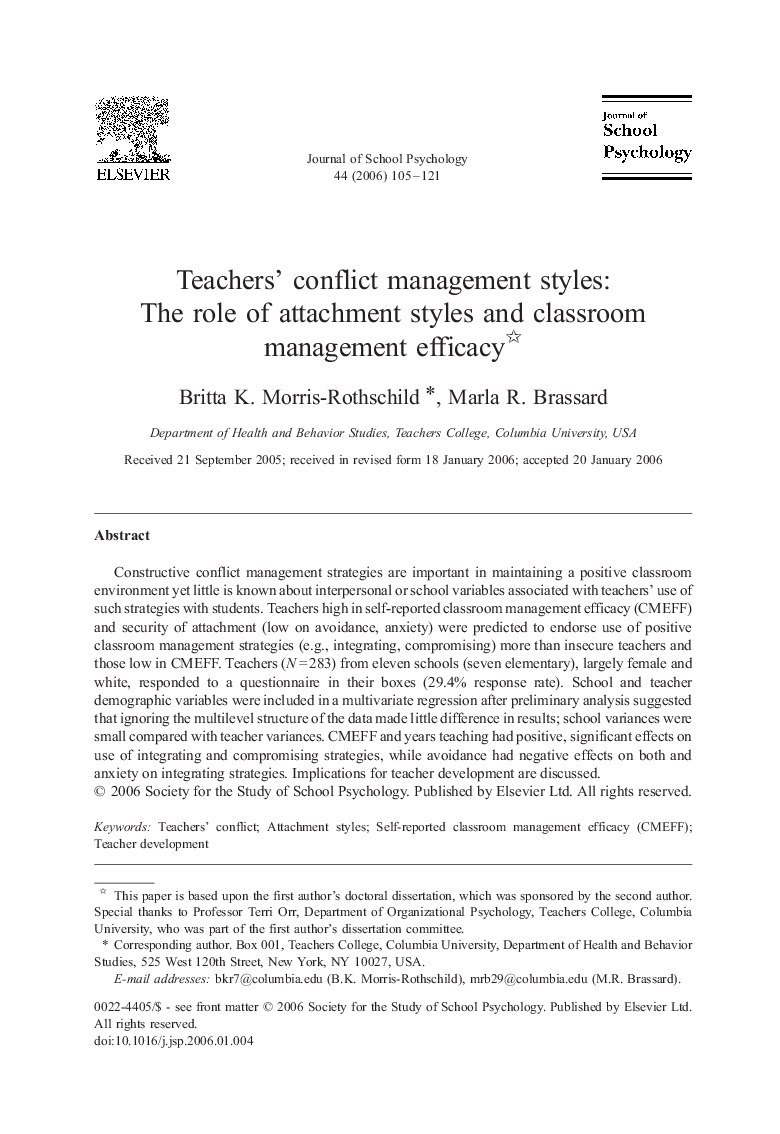| Article ID | Journal | Published Year | Pages | File Type |
|---|---|---|---|---|
| 363878 | Journal of School Psychology | 2006 | 17 Pages |
Constructive conflict management strategies are important in maintaining a positive classroom environment yet little is known about interpersonal or school variables associated with teachers' use of such strategies with students. Teachers high in self-reported classroom management efficacy (CMEFF) and security of attachment (low on avoidance, anxiety) were predicted to endorse use of positive classroom management strategies (e.g., integrating, compromising) more than insecure teachers and those low in CMEFF. Teachers (N = 283) from eleven schools (seven elementary), largely female and white, responded to a questionnaire in their boxes (29.4% response rate). School and teacher demographic variables were included in a multivariate regression after preliminary analysis suggested that ignoring the multilevel structure of the data made little difference in results; school variances were small compared with teacher variances. CMEFF and years teaching had positive, significant effects on use of integrating and compromising strategies, while avoidance had negative effects on both and anxiety on integrating strategies. Implications for teacher development are discussed.
